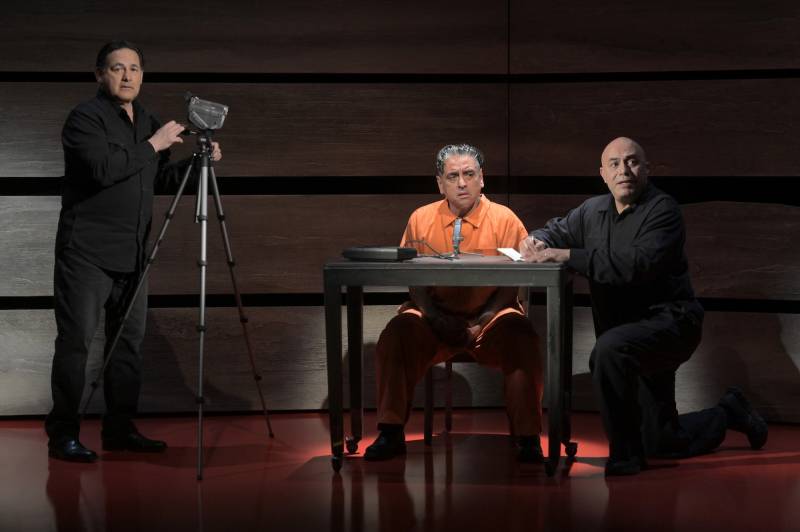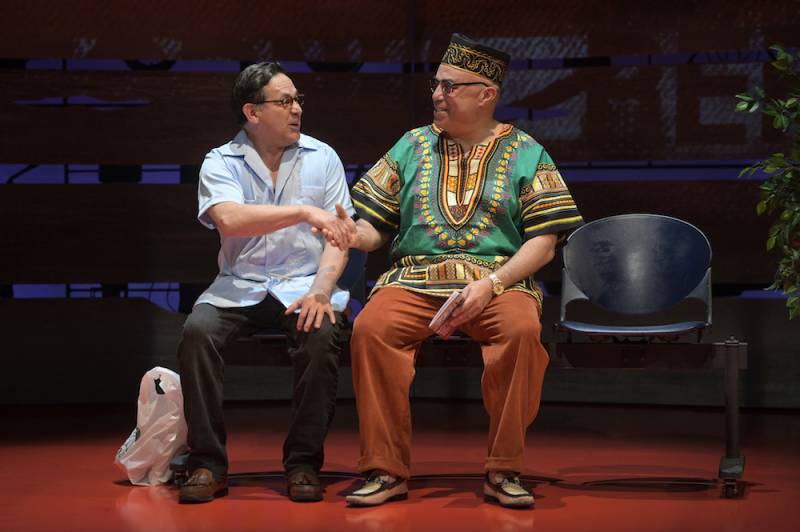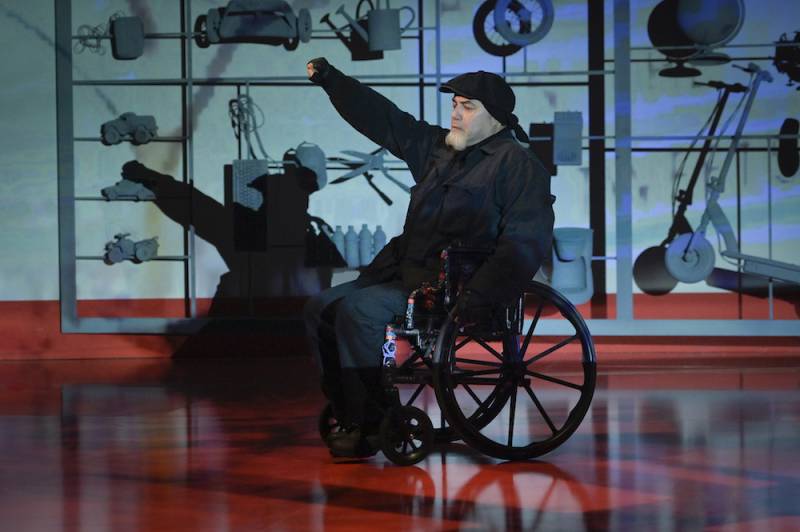If the phrase “documentary theater” makes you think only of earnest excavations of a historical moment performed by a solo shape-shifting storyteller, you owe it to yourself to experience the boisterous irreverence of Culture Clash.
Formed in 1984 at Galería de la Raza in San Francisco’s Mission District—with early members including Marga Gomez and Monica Palacios—Culture Clash has created work as a trio since 1988. Using social satire as a frame for focusing attention on Chicano culture and the immigrant experience, Culture Clash uses laughter as a tool of subversion, giving its audiences an alternative history lesson of “America” from the point-of-view of its outsiders. Guillermo Gómez-Peña once dubbed the group “reverse anthropologists.”
Currently performing a mélange of their most seminal scenes plus some newer, timelier material at Berkeley Repertory Theatre, their familiarity with the Bay Area informs their humorous asides, including some knowing digs at Orinda, People’s Park protesters, and the Mission District-born Philz coffee.
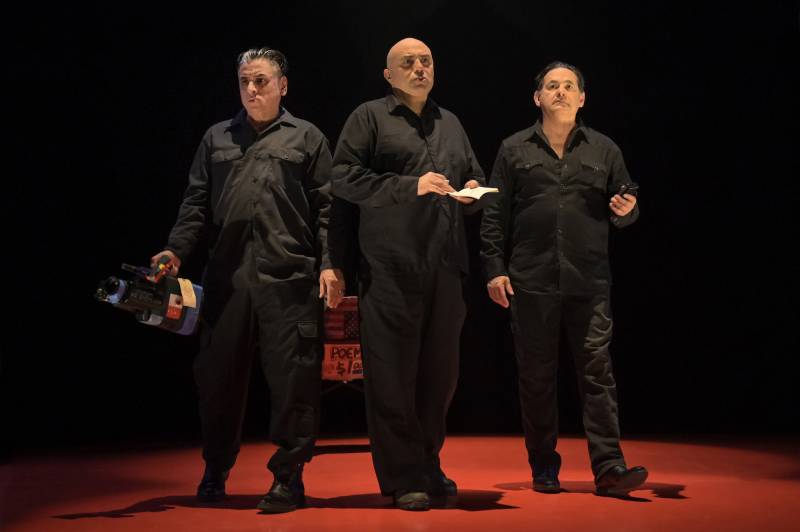
But Culture Clash is much more than their one-liners. For over 20 years, they’ve investigated the Chicano/Latino experience using the same rigorous documentarian approaches as theater-makers such as Anna Deavere Smith and Dan Hoyle. Criss-crossing the country, tape recorders and video cameras in hand, their interview subjects include couples in Miami Beach, new citizens at their naturalization ceremony, a hyper-active Nuyorican toting an old-school boombox, and a hopeful Middle-Eastern Uber driver observing dryly that “there is nothing in the Koran about raising an American teenager.” Occasionally, in the spirit of fun, they turn the cameras onto their audience, capturing every reaction with a cheerful thumbs up.
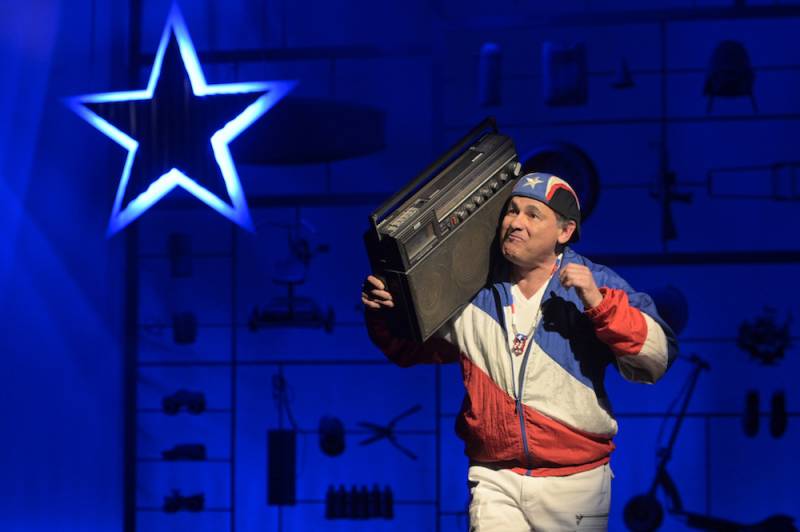
In a staccato burst of loosely-arranged sketches, Culture Clash (Still) in America, directed by Lisa Peterson, explores its plurality of voices with good-natured portrayals. Even less sympathetic characters such as Floridian blowhard Todd (Herbert Sigüenza), whose casual racism and sexism dominates much of his discourse, seems weirdly vulnerable when confessing his emotional distance from his own family in comparison to that of his Cuban wife (Ricardo Salinas). She, in turn, belies her long-suffering subservience with smilingly delivered contradictions and a swift KO.
